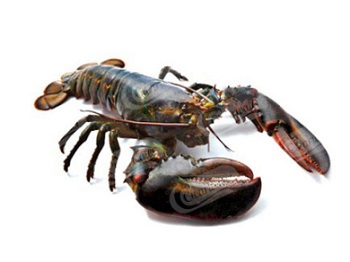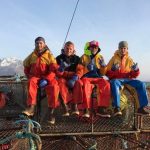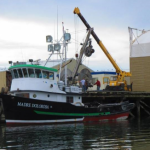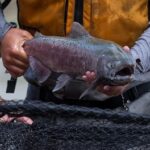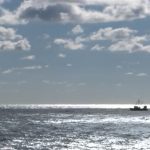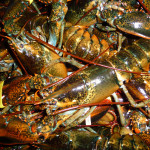Tag Archives: Membertou First Nation
Fisheries minister announces external review of Mi’kmaw fishermen’s case
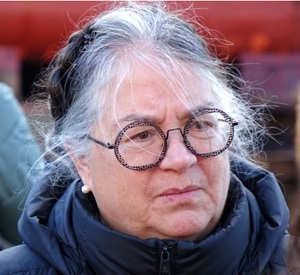 Two Mi’kmaw fishermen who were dropped off in the middle of nowhere in rural Nova Scotia in their sock feet on a cold and rainy March night, their cellphones seized by federal fisheries officers, hope an external investigation will shed some light on the actions of the officers that night. “Even though I went out and did what I did, still at the end of the day, it’s wrong what happened to me,” said Blaise Sylliboy of the Eskasoni First Nation in Cape Breton, one of the men detained for fishing for elvers at night along a river in Shelburne County early last spring. Federal Fisheries Minister Diane Lebouthillier announced in a news release Monday morning that an external review process will examine the incident on March 26, 2024, as well as department policies, enforcement practices, and “procedures to eradicate the potential for systemic biases or racism.” more, >>CLICK TO READ<< 08:24
Two Mi’kmaw fishermen who were dropped off in the middle of nowhere in rural Nova Scotia in their sock feet on a cold and rainy March night, their cellphones seized by federal fisheries officers, hope an external investigation will shed some light on the actions of the officers that night. “Even though I went out and did what I did, still at the end of the day, it’s wrong what happened to me,” said Blaise Sylliboy of the Eskasoni First Nation in Cape Breton, one of the men detained for fishing for elvers at night along a river in Shelburne County early last spring. Federal Fisheries Minister Diane Lebouthillier announced in a news release Monday morning that an external review process will examine the incident on March 26, 2024, as well as department policies, enforcement practices, and “procedures to eradicate the potential for systemic biases or racism.” more, >>CLICK TO READ<< 08:24

Nova Scotia’s Billion-Dollar Lobster Wars
At the River Café, the Michelin-recommended restaurant on the Brooklyn waterfront where the term “free-range chicken” was coined, the lobster is served butter-poached next to a pool of lemon-grape sauce, to brighten its tender brininess. The chef, Brad Steelman, insists on lobster from the cold waters of Nova Scotia, because this insures a hard shell and robust meat. Not so long ago, good lobster could be found closer to the city. Historically, there were strong harvests as far south as New Jersey. Private-equity firms and seafood conglomerates have swallowed many of North America’s fisheries. But, in Nova Scotia, most lobstermen are independent. But many inshore fishermen have also resisted a recent entrant to the power struggle: the Mi’kmaq, the most populous group of Indigenous people in Atlantic Canada. more, >>CLICK TO READ<< 06:58
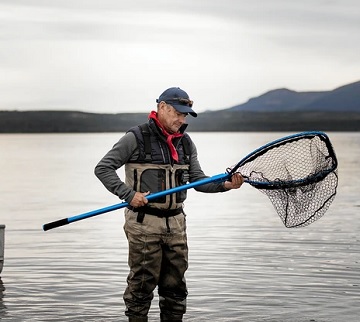
The man who changed Canada’s lobster industry and his $1B deal to sell Clearwater
In Nova Scotia, John Risley is arguably a household name, synonymous with the seafood industry and his many conspicuous possessions. On both fronts, his reputation is well earned. In 1976, he and his brother-in-law Colin MacDonald started Clearwater, a dumpy retail lobster shop on the side of a suburban Halifax highway. From that simple start, Risley fundamentally changed the Atlantic Canadian lobster industry — transforming it from a seasonal, afterthought business to a year-round, $3-billion sector where lobsters are shipped overnight by air to customers in Europe and Asia, a premise unheard of before Risley entered the industry. Along the way, Clearwater matured into a global seafood company. >click to read< 07:43
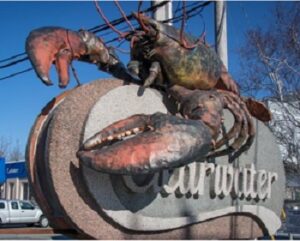
Clearwater Seafoods wants 72 tonnes of lobster added to its annual harvesting quota
The Indigenous-owned company has exclusive rights to Lobster Fishing Area 41, or LFA 41, off southern Nova Scotia, where Clearwater maintains a long-held quota of 720 tonnes. Last fall, the Membertou First Nation and Mi’kmaw partners in the company asked the Department of Fisheries and Oceans to increase the total allowable catch by ten per cent. In response, DFO has issued an “interim” total allowable catch of 720 tonnes for 2023 while it considers this request. The Brazil Rock Lobster Association, the Coldwater Lobster Association and the LFA 33 Advisory Committee have submitted letters to DFO in opposition. >click to read< 08:44

Fisherman sentenced for ‘blatant and overt’ interference in Membertou lobster fishery
A Cape Breton fisherman has been fined $6,200 and ordered off the water for six months for cutting lobster traps fished by the Membertou band and obstructing fishery officers. The sentence was handed down in a Sydney, N.S., courtroom Wednesday after Bernard Douglas MacIntyre pleaded guilty on two charges. Two other counts were dropped. MacIntyre and others on his boat, Kelsey & Mitchell II, were seen cutting traps in Sydney Harbour on the night of Dec. 3, 2020. The only lawful lobster fishery underway in the area was for food, social and ceremonial licence holders. Members of Membertou First Nation were fishing from the Sydport wharf. >click to read< 14:56
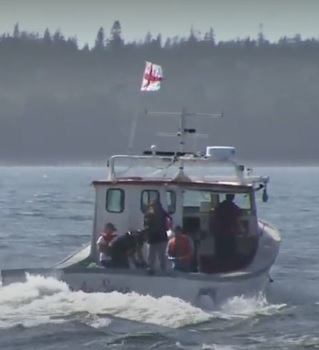
Conflict over new Indigenous lobster fishery continues to smolder amid some progress
Federal conservation officers have seized more than 7,000 lobster traps in the two years since violence flared in Nova Scotia when a First Nation tried to assert a treaty right by fishing out of season. Earlier this month, the Department of Fisheries and Oceans confirmed it had confiscated almost 2,000 traps this year alone, a figure that shows the dispute between Ottawa and some Indigenous fishers has not gone away, despite DFO’s best efforts to keep a lid on tensions. Tim Kerr, DFO’s director of conservation and protection in the Maritimes, said the department has stepped up patrols in the region to ensure safety and compliance with the rules. >click to read< 12:00
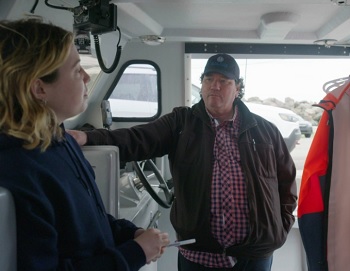
Mi’kmaq First Nation, environmental group work on creating electric lobster boat
An environmental charity and the Membertou First Nation in Cape Breton are partnering to create electric lobster boats on the East Coast, saying it’s the way of the future if Canada is to meet its zero-emission targets. Hubert Nicholas, the director of fisheries at Membertou, said in an interview the new boats will likely be costlier than diesel-powered vessels at first, but he said it’s expected there will be savings in maintenance and fuel costs. Nicholas estimated the cost of lobster boats is about $600,000 to $700,000, adding that an electrical boat would have higher, yet-to-be-determined costs for its engine and other components.>click to read< 13:11
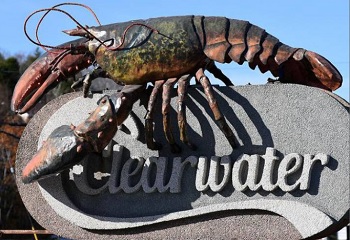
How the $250M Clearwater Seafoods purchase by 7 Mi’kmaw First Nations came to be
“In the beginning, we wanted a pathway, a clear pathway on how we’d end up with 100 per cent of the ownership of the company,” said Chief Terry Paul of the Membertou First Nation. “Most all of the prospective partners walked away … because of our insistence on what we were looking for.” Paul made the comments during an online chat with Clearwater founder John Risley that was put on by the non-profit Public Policy Forum. >click to read< 09:42

Premium Brands and Mi’kmaq First Nations Coalition Announce Acquisition Completion of Clearwater Seafoods Inc.
“We are very excited to have a world class seafood company like Clearwater join our ecosystem.,,, said George Paleologou, President and CEO of Premium Brands. “We are also very pleased to be partnering with the Membertou, Miawpukek, Sipekne’katik, We’koqma’q, Potlotek, Pictou Landing and Paqtnkek communities. “This is a significant achievement for the Mi’kmaq,” said Chief Terry Paul, Membertou First Nation. “Mi’kmaq not only become 50% owners of the company but expect to hold Clearwater’s Canadian fishing licences within a fully Mi’kmaq owned partnership. >click to read< 09:23
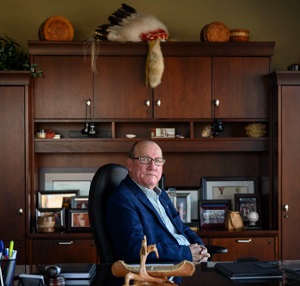
How a Mi’kmaq nation found prosperity and a seafood empire
The urban Mi’kmaq reservation, on the southern edge of Sydney, N.S., used to be the kind of place many in Cape Breton avoided. It was seen by outsiders, unfairly, as rough, poor and unwelcoming to business. Chief Terry Paul, “They all used to avoid this place. Now, they’re all here. They have businesses here. Even the taxis wait for their fares.” This month, the remarkable four-decade-long transformation of the community reached a new milestone with Membertou’s co-ownership of the largest shellfish producer in North America, Clearwater Seafoods. >click to read< 11:56
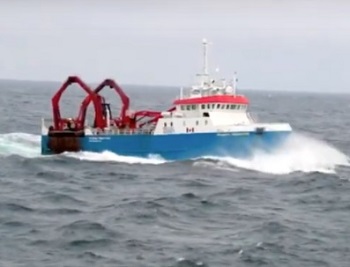
Independent inshore lobster fishermen fear the Clearwater purchase could decimate their livelihoods
In 2018, then-Minister of Fisheries and Oceans, Dominic Leblanc, put an end to Clearwater’s 20-year monopoly on the lucrative offshore fishery of Arctic surf clam when he allocated a quarter of the clam quota to the Five Nations Clam Company,,, Clearwater threatened legal action over the deal, and after it emerged that LeBlanc had family ties to Premium Seafoods, the plan was cancelled. Clearwater regained its surf clam monopoly for a year. Then in 2020, just nine days before Sipekne’katik First Nation launched its moderate livelihood fishery in Saulnierville in Southwest Nova, Clearwater announced that Membertou First Nation had purchased two of its eight licences for offshore lobster, over which the company had a monopoly,,, >click to read< Search Results for: Five Nations Clam Company, (lots )>click here< 20:56

‘Reconciliation in Canada’: The Clearwater deal marks Indigenous nations’ growing clout
Chief Terry Paul, of Membertou First Nation in Nova Scotia, who is leading the Mi’kmaq coalition, described it as a “transformational opportunity for the Mi’kmaq to become significant participants in the commercial fishery,” and praised Clearwater’s management expertise, infrastructure and global presence. A spokeswoman for Clearwater said the new owners have no plans to make any operational changes other than taking the company private. The deal is a major leap for Paul’s Membertou Nation, which posted $67 million in revenue in 2019, with a diversified revenue stream from fishing, the Membertou Trade & Convention Centre on Cape Breton Island and a number of other businesses. >click to read< 10:50

‘We won’: Clearwater Seafoods deal gives Mi’kmaq control of lucrative ocean stretch
Early this week, leaders of the Membertou and Miawpukek First Nations, both of which are Mi’kmaq communities, reached an agreement to buy Nova Scotia-based Clearwater Seafoods in a deal worth C$1bn (£580m). Heralded as the “single largest investment in the seafood industry by any Indigenous group in Canada”, the landmark deal comes at a critical moment for Indigenous communities in the region, as tensions remain high over their treatied fishing rights. >click to read< 15:48
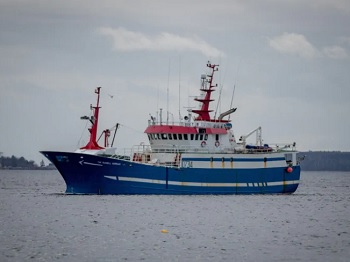
“There’s something awful fishy going on here”: What about Clearwater and the offshore lobster fishery?
Media attention is trained on St. Mary’s Bay in southwest Nova Scotia, where the Sipekne’katik First Nation led by Chief Michael Sack has been exercising Treaty rights to a “moderate livelihood” fishery since September 17. But what is happening in the offshore lobster fishery is going largely unnoticed. That is absolutely understandable, given the very ugly scenes that erupted,,, But what is happening in the offshore could also have wide-reaching impacts on the Atlantic lobster fishery and independent inshore fishers, and is also worth keeping an eye on.,, Just nine days before Sipekne’katik fishers took to the waters, Membertou First Nation and Clearwater Seafoods announced that they had “reached an agreement for the sale of two of Clearwater’s eight offshore lobster licences” to Membertou. >click to read< 19:52

Membertou First Nation Chief Paul leaves Assembly of Mi’kmaq Chiefs in split over moderate livelihood
Chief Terry Paul has stepped down from the Assembly of Nova Scotia Mi’kmaq Chiefs due to a disagreement over how moderate livelihood negotiations are being conducted. Paul, who is chief of Membertou First Nation in Cape Breton, had served as the fisheries lead for the assembly’s negotiation arm called the Kwilmu’kw Maw-klusuaqn Mi’kmaq Rights Initiative (KMKNO). Negotiations fell apart last week between that body and Fisheries and Oceans Canada over the implementation of a moderate livelihood fishery by the Mi’kmaw. Paul said Wednesday that the KMKNO is not adequately representing all of the province’s first nations. “I feel that not all the communities are being treated the same way,” >click to read< 13:34
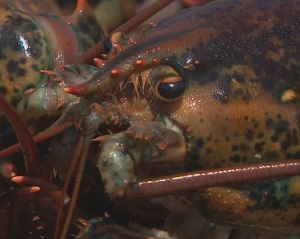
Membertou First Nation buys two offshore lobster licences at $25 million
Membertou First Nation has reached an agreement with Clearwater Seafoods for a $25-million purchase of two offshore lobster licences. “We’re very excited here in Membertou First Nation. It’s a historic investment,” said Chief Terry Paul of the announcement made this week. “…It significantly increases our presence in the offshore commercial lobster fishing.” Clearwater Seafoods has a deal with 14 Mi’kmaq communities in Nova Scotia and Newfoundland regarding Arctic surf clams, announced last year. >click to read< 08:47







